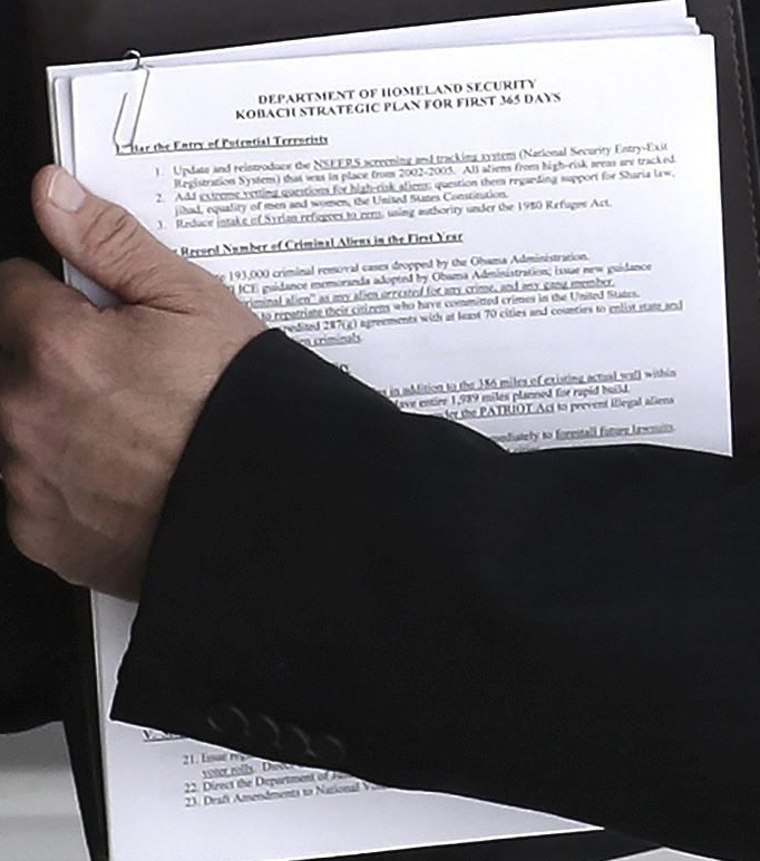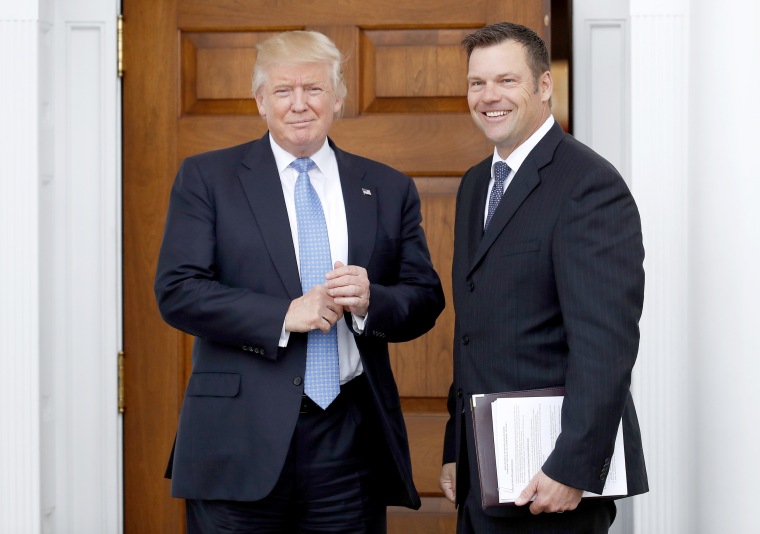Last November, Kris Kobach, the conservative firebrand who co-chairs the president's voter fraud panel, walked into a meeting with President-elect Donald Trump with a proposal to "Stop Aliens From Voting."
On Thursday, a federal judge ordered the release of that proposal and another memo advocating sweeping changes to the nation's voter registration laws after Kobach, the Kansas secretary of state, fought vigorously for months to keep the documents from public scrutiny.
Kobach, according to the two unsealed documents, proposed that states require individuals to provide documents proving their U.S. citizenship when registering to vote by amending several sections of the 1993 National Voter Registration Act.
The documents give a glimpse into the hardline plan Kobach, a strict voter ID advocate, proposed to the president regarding voting rights, before Kobach joined the president's Election Integrity Commission to examine nationwide voting issues.
The two documents were ordered released by U.S. District Judge Julie Robinson as part of a voting rights lawsuit filed in February 2016 by the American Civil Liberties Union.
The first document — titled “Kobach Strategic Plan for First 365 Days" — was heavily redacted, except for a section titled "Stop Aliens From Voting," with a bullet point promoting the proof-of-citizenship requirements.
That document, presented to Trump last November, was photographed by The Associated Press.

At the time, a zoomed-in image of the document revealed that the first bullet point was to reinstate an immigrant tracking system established in the wake of the 9/11 terrorist attacks, with other portions covered by Kobach's hand.
The second document detailed five amendments to the national voter registration law, which allows voters to register at motor vehicle offices, allowing a state to require "any information" from voters when registering.
Kobach proposed adding a new section to the law stating: “Nothing in this section shall be construed to prevent a state from requiring documentary proof of citizenship from any applicant.”
Kobach and his lawyers tried to prevent the release of the documents, arguing they were protected under attorney-client and executive privileges.
Dale Ho, the director of the ACLU’s Voting Rights Project, praised the unsealing and criticized Kobach's proposals.
"Kris Kobach is public enemy No. 1 when it comes to voter suppression in the country, which is why courts have repeatedly ruled against him," Ho said in a statement.
"The documents unveiled today show that he wants to dismantle the motor-voter law and replicate his voter suppression practices — which have disenfranchised thousands of Kansans — around the country."
Kobach has been on a crusade in his home state to root out illegal voting, which experts say is rare; he successfully lobbied the state Legislature in 2015 to become deputized to prosecute voter fraud cases.
In two years, he has had nine convictions, most of older individuals who had misunderstood their voting rights, and just one noncitizen.
Kobach, who is running for governor of Kansas, was tapped in May to co-chair the president's voter fraud commission, which has received bipartisan backlash for requesting sensitive voter file data.
His office did not respond to a request for comment.

